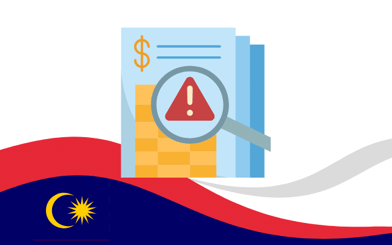How to Obtain a Standard Payment Institution (SPI) License In Singapore
Contents
Embark on a journey through the intricacies of obtaining a Standard Payment Institution (SPI) licence in Singapore. From understanding the covered activities to navigating through the licence requirements, this blog serves as your comprehensive guide to participating responsibly in the dynamic realm of payment services.
What is the SPI License
The SPI licence, governed by the Payment Services Act, is a regulatory framework for entities engaging in various payment services in Singapore. This licence is pivotal for businesses involved in activities such as account issuance, money transfers, merchant acquisition, and more.
Who is the SPI License for
Tailored for entities involved in a spectrum of payment services, the SPI licence is designed for both Singapore-incorporated companies and foreign corporations registered in Singapore. Essential for those seeking to operate within the thresholds set by the Payment Services Act.
What Activities are Covered
Covered activities under the SPI licence encompass a diverse range, including account issuance, domestic and cross-border money transfers, merchant acquisition, e-money issuance, digital payment token services, and money-changing services.
Basic Requirements Under SPI License
For entities venturing into the area of payment services, specific criteria must be satisfied. The applicant must be either a Singapore-incorporated company or a foreign corporation registered in Singapore. Additionally, a permanent place of business or registered office is a prerequisite, along with a minimum base capital of S$100,000. The board of directors should include at least one executive director who is a Singapore Citizen or Permanent Resident and, where applicable, an executive director holding a Singapore Employment Pass.
Detailed Requirements
The path to obtaining a Standard Payment Processor License involves meeting specific criteria and demonstrating capabilities:
- Fit and Proper Criteria:
- MAS requires the entity, its directors, and key individuals to be fit and proper, free from adverse reputations, especially regarding financial crimes.
- Competency of Key Individuals:
- Key individuals must have sufficient experience in payment services or related financial areas.
- Educational qualifications and professional certifications should align with the roles they undertake.
- Business Setup:
- A permanent place of business or registered office is mandatory, serving as a secure location for records.
- At least one person must be available to address customer queries or complaints.
- Base Capital Requirements:
- MAS expects applicants to detail how they will meet base capital requirements.
- A minimum base capital of SGD 100,000 is mandatory.
- Compliance Arrangements:
- Plans for compliance arrangements must align with the business's nature, scale, and complexity.
- Ultimate responsibility for compliance rests with key individuals.
- Technology Risk Management:
- Online financial service providers must conduct penetration tests and remediation, validated independently before the licence grant.
- Audit Arrangements:
- Adequate independent audit plans are essential to assess procedure effectiveness and regulatory compliance.
- Internal or outsourced audits must align with the business's scale and complexity.
- Ongoing Requirements:
- Adherence to Anti-Money Laundering and Countering the Financing of Terrorism (AML/CFT) requirements.
- Submission of periodic regulatory returns and compliance with cyber hygiene and business conduct standards.
- Disclosures and Communications:
- Accurate representation of the licence scope and timely updates on material changes to disclosures.
Restrictions Under SPI License
Standard payment institutions operate under certain thresholds specified in section 6(5) of the Payment Services Act. Monthly transaction limits, both for individual and multiple services, along with daily outstanding e-money thresholds, define the scope of operations. Businesses exceeding these limits must apply for a major payment institution licence.
Licence Fees Under SPI License
Standard payment institutions are subject to annual licence fees, varying based on the payment services provided. Prescribed fees, detailed in the Schedule to the PSR, depend on the activity type, ranging from S$0 to S$5,000.
|
Activity Type |
Fees |
|
Account issuance service |
S$0 |
|
Domestic money transfer service |
S$5,000 |
|
Cross-border money transfer service |
S$5,000 |
|
Merchant acquisition service |
S$5,000 |
|
E-money issuance service |
S$5,000 |
|
Digital payment token service |
S$5,000 |
|
Money-changing service |
S$1,500 |
SPI Licensing Timelines
The licensing process involves approximately 4-6 weeks of preparation and an expected processing time of 4 months. The timeline varies based on the complexity of the business model, technological challenges, and the completeness and clarity of the application.
Navigating the SPI licensing process is a strategic move for entities aiming to participate responsibly in Singapore's payment services landscape. This comprehensive guide ensures a clear understanding of the covered activities, regulatory requirements, and ongoing commitments, fostering a secure and compliant entry into the dynamic realm of payment services.
Related Articles
Time to reform your compliances
Kickstart your journey by exploring our products or book a demo with us.









.png?height=245&name=AML%20Regulation%20Malaysia%20(640%20x%20400%20px).png)




.png?height=245&name=MSB%20License%20-%20MY%20(1).png)






